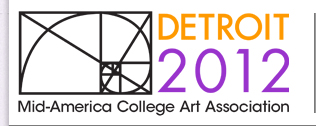Session Title
Technicity and Aesthetics in the Photographic Image
Start Date
5-10-2012 9:45 AM
End Date
5-10-2012 11:15 AM
Session Description
Since its emergence as theoretical object, photography has been defined by the loss of its identity as a historical and aesthetic object. Rosalind Krauss maintains that, “in becoming a theoretical object, photography loses its specificity as a medium,” so that “now photography can only be viewed through the undeniable fact of its own obsolescence.” Digitization further complicates the ontology of photography. Today, Geoffrey Batchen submits, the “suggestion is that a diminution of our collective faith in the photograph's indexical relationship to the real will inevitably lead to the death of photography as an autonomous medium.”
In contrast to such ambivalent assessments, Vilém Flusser argues that photographs are technical images, surfaces enabled and determined by the apparatus that open up an unanticipated power of invention, a hallucinatory power springing from the "absence of a point of reference." The universe of technical images, he suggests, produces a “mutation of experiences, perceptions, values, and modes of behavior, a mutation of our being-in-the-world.”
Inspired by Flusser’s alternative account, this panel reconsiders the relation between the technicity and the aesthetics of photographic images. What aesthetic effects might photographs have in the “absence of a point of reference”? Or, must we re-imagine what the organization by reference means? Can we still think photography as medium, when every photograph is, in Flusser’s words, a ”realization of one of the possibilities contained within the program of the camera”? Can we re-conceive photography, in its very technicity, as a power to organize emergent, differing aesthetics?
Technicity and Aesthetics in the Photographic Image
Since its emergence as theoretical object, photography has been defined by the loss of its identity as a historical and aesthetic object. Rosalind Krauss maintains that, “in becoming a theoretical object, photography loses its specificity as a medium,” so that “now photography can only be viewed through the undeniable fact of its own obsolescence.” Digitization further complicates the ontology of photography. Today, Geoffrey Batchen submits, the “suggestion is that a diminution of our collective faith in the photograph's indexical relationship to the real will inevitably lead to the death of photography as an autonomous medium.”
In contrast to such ambivalent assessments, Vilém Flusser argues that photographs are technical images, surfaces enabled and determined by the apparatus that open up an unanticipated power of invention, a hallucinatory power springing from the "absence of a point of reference." The universe of technical images, he suggests, produces a “mutation of experiences, perceptions, values, and modes of behavior, a mutation of our being-in-the-world.”
Inspired by Flusser’s alternative account, this panel reconsiders the relation between the technicity and the aesthetics of photographic images. What aesthetic effects might photographs have in the “absence of a point of reference”? Or, must we re-imagine what the organization by reference means? Can we still think photography as medium, when every photograph is, in Flusser’s words, a ”realization of one of the possibilities contained within the program of the camera”? Can we re-conceive photography, in its very technicity, as a power to organize emergent, differing aesthetics?

